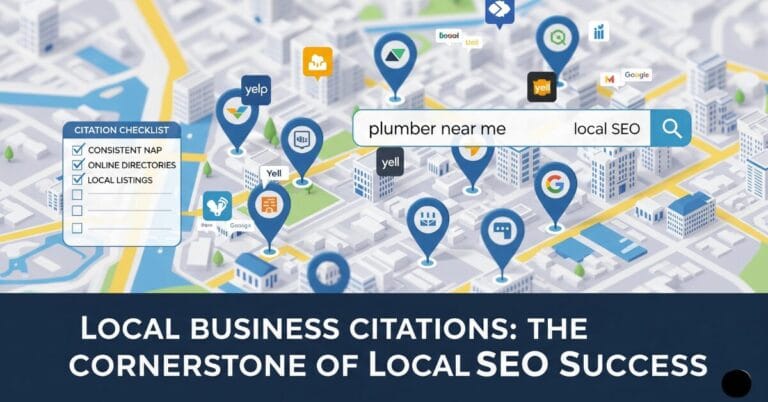Running a small business in the UK is challenging. You wear many hats, from managing sales to customer service, and keeping up with SEO can feel overwhelming. But the right SEO for small businesses can make everything easier.
Whether you want to improve your Google rankings, track your competitors, or find the best keywords, having the right tools saves time, money, and effort. In this guide, we’ll explore the best SEO tools for small business owners in 2025 and how you can use them to grow your online presence.
Why SEO Tools Are Important for Small Businesses
Many small business owners make the mistake of guessing what works for SEO. But Google doesn’t reward guesses, it rewards data-driven decisions.
With the right tools, you can:
- Find profitable keywords without wasting time.
- Monitor your website performance and fix issues fast.
- Track competitors and learn what works in your niche.
- Measure ROI and see which SEO actions bring real results.
Top SEO Tools for Small Business Owners
Here’s a list of the most effective SEO tools for small businesses in 2025.
1. Google Search Console
Why it’s useful:
Google Search Console is free and shows exactly how your website is performing on Google. You can see which keywords bring traffic, check for errors, and improve your site’s visibility.
Key features:
- Track clicks, impressions, and average ranking.
- Identify mobile usability and indexing issues.
- Submit sitemaps for faster indexing.
Tip: Connect it with Google Analytics to get a complete performance picture.
2. Google Analytics 4 (GA4)
Why it’s useful:
GA4 tracks your website visitors and tells you which pages convert into sales or leads. This helps small businesses focus on high-performing content.
Key features:
- User behavior tracking.
- Conversion and goal tracking.
- Audience demographics and location insights.
Tip: Set up goals to see which SEO actions bring the most value.
3. SEMrush
Why it’s useful:
SEMrush is a premium SEO tool that works for both beginners and experts. It helps small businesses research keywords, audit websites, and spy on competitors.
Key features:
- Keyword research with difficulty scores.
- Site audit to fix technical SEO issues.
- Competitor analysis to find backlink opportunities.
Tip: Use the SEO Content Template feature to create content that’s optimized for Google.
4. Ahrefs
Why it’s useful:
Ahrefs is famous for backlink tracking and competitor research. Small business owners can see which sites link to their competitors and find opportunities to build their own links.
Key features:
- Backlink analysis and monitoring.
- Keyword explorer for easy ranking.
- Content gap analysis to find untapped opportunities.
Tip: Check which keywords your competitors rank for and target the same ones with better content.
5. Moz Pro
Why it’s useful:
Moz Pro is perfect for beginners who want a simple but powerful SEO tool. It helps small businesses track rankings, optimize pages, and improve local SEO.
Key features:
- Rank tracking for keywords in the UK.
- On-page optimization suggestions.
- Local SEO tools for businesses with physical stores.
Tip: Use Moz’s link explorer to build high-quality backlinks.
6. Yoast SEO (WordPress)
Why it’s useful:
If your website runs on WordPress, Yoast SEO is a must-have plugin. It helps small businesses optimize content for search engines without technical knowledge.
Key features:
- Keyword optimization and readability checks.
- XML sitemap creation.
- Breadcrumb setup for better site structure.
Tip: Use Yoast to improve blog posts for target keywords before publishing.

7. Ubersuggest
Why it’s useful:
Ubersuggest is a beginner-friendly SEO tool that offers keyword suggestions, competitor insights, and site audits at an affordable price.
Key features:
- Keyword research with search volume and difficulty.
- Site audit for SEO errors.
- Competitor website analysis.
Tip: Use Ubersuggest to discover long-tail keywords your small business can rank for easily.
8. Screaming Frog SEO Spider
Why it’s useful:
Screaming Frog is a desktop tool that crawls your website to find technical SEO issues. It’s great for small business owners who want to fix problems before Google notices them.
Key features:
- Detect broken links, duplicate content, and missing meta tags.
- Analyze internal linking structure.
- Export reports for developers.
Tip: Run a crawl monthly to keep your site healthy.
9. Canva for Visual SEO
Why it’s useful:
Visual content is key for SEO. Canva lets small businesses create professional graphics, infographics, and social media posts that improve engagement and rankings.
Key features:
- Easy drag-and-drop editor.
- Templates for blog graphics and social media.
- Optimized images for web use.
Tip: Compress images before uploading to improve page speed.
10. AnswerThePublic
Why it’s useful:
AnswerThePublic helps small business owners discover the questions their customers are asking. This creates content ideas that attract organic traffic.
Key features:
- Question and preposition-based keyword research.
- Visual maps of customer queries.
- Insights into long-tail keyword opportunities.
Tip: Use the questions to write blog posts, FAQs, and guides for your website.
Conclusion
Using the right SEO tools makes a huge difference for small businesses in the UK. From Google Analytics and Search Console to premium options like SEMrush and Ahrefs, these tools help you track, analyze, and improve your online presence.
Investing time in learning and using these tools ensures your website ranks higher, attracts more customers, and grows your business faster.
Remember: Tools alone don’t guarantee success. Combine them with a clear SEO strategy, consistent content creation, and local optimisation to get the best results.
FAQs
1. Which SEO tools are best for beginners?
Google Search Console, Google Analytics, Ubersuggest, and Yoast SEO are beginner-friendly and easy to use.
2. Do I need to buy paid SEO tools?
Not always. Free tools like Google Search Console and Analytics can work for many small businesses, but premium tools provide advanced features and competitor insights.
3. How do I choose the right SEO tool for my business?
Focus on your goals. If you want keyword research, use SEMrush or Ahrefs. For local SEO, Moz Pro is ideal.
4. Can SEO tools guarantee top Google rankings?
No, tools help with strategy and optimisation, but quality content, backlinks, and user experience determine rankings.
5. Are there UK-specific SEO tools for small businesses?
Most global tools work in the UK. Moz Pro and SEMrush offer location-specific features for cities like London, Manchester, and Birmingham.






